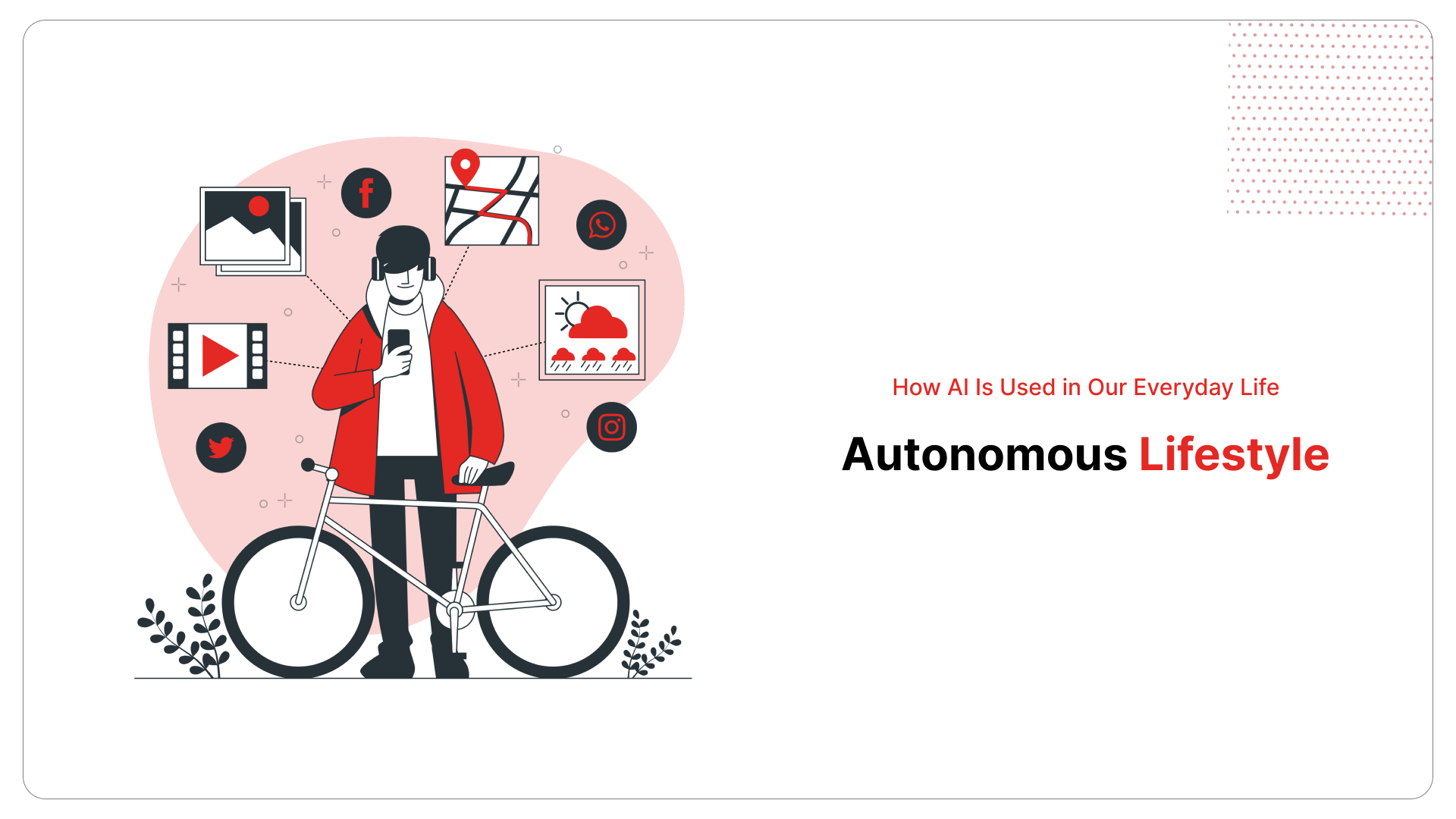
AI leading to autonomous lifestyle
- Harris Minhas
- 25 January 2022
Qualities of AI
In spite of the fact that there is no consistently settled upon definition, AI by and large is thought to refer to “machines that react stimulation consistent with traditional responses from people, given the human limit with regards to consideration, judgment, and intention.”
Intentionality
Artificial intelligence algorithms are intended to decide, regularly utilizing real-time information. They are unlike passive machines that are competent just of mechanical or predetermined reactions. Utilizing sensors, computerized information, or far off inputs, they join data from a wide range of sources, investigate the material immediately, and follow up on the experiences obtained from that information. With massive improvements in storage systems, processing speeds, and scientific procedures, they are equipped for huge complexity in investigation and decision making.
Adaptability
AI frameworks can learn and adjust as they decide. In the transportation region, for instance, semi-autonomous vehicles have instruments that let drivers and vehicles think about forthcoming blockage, potholes, expressway development, or other conceivable traffic obstacles. Vehicles can take advantage of the experience of different vehicles out and about, without human inclusion, and the whole corpus of their accomplished “insight” is promptly and completely adaptable to other similar designed vehicles. Their high-level calculations, sensors, and cameras incorporate experience in current tasks, and use dashboards and visual presentations to introduce data progressively so human drivers can figure out continuous traffic and vehicular conditions. Furthermore, on account of completely self-ruling vehicles, advanced systems can totally control the vehicle, and settle on every one of the navigational choices.
Intelligence
AI generally is undertaken in conjunction with machine learning and data analytics. AI takes information and searches for basic patterns. If it spots something that is pertinent for a practical issue, programmers can take that information and use it to investigate specific issues. All that is required is information that is adequately robust that calculations can recognize helpful examples. Information can come as advanced data, satellite symbolism, visual data, text, or unstructured information.
Examples Of How AI Is Used in Our Everyday Life
Smart home devices
Our homes are progressively becoming “smart.” Many of us currently have “keen” indoor regulators, for example, the Nest that finds out about our warming/cooling inclinations and daily habits to adjust the temperature to our liking in time for our return home. There are keen coolers that make records for what you need based on what’s at this point not in your fridge, just as offer wine suggestions that would go with your supper. Obviously, smart appliances will continue to be more common.

(Image credit: Media Raw Stock | Getty Images)
Digital voice assistants
Apple’s Siri, Google Now, Amazon’s Alexa, and Microsoft’s Cortana are computerized colleagues that assist clients with performing different assignments, from checking their timetables and looking for something on the web, to sending orders to another application. AI is a significant piece of how these applications work since they gain from each and every client connection.
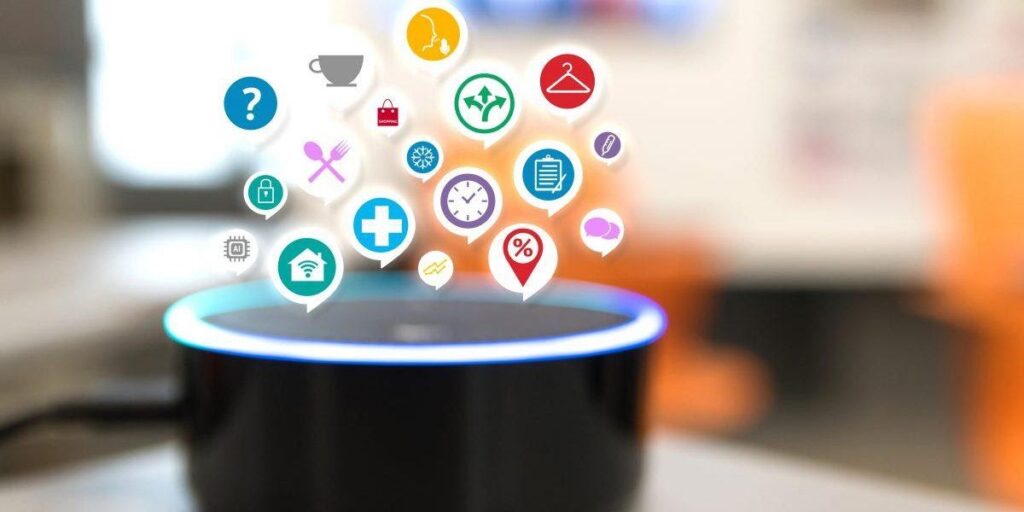
Amazon recommendations
Talking about shopping, America’s biggest online retailer Amazon is another way numerous individuals are presented to computerized reasoning routinely. The retailer’s AI algorithms learned what you like and what others who resemble you bought to convey to your Amazon feed recommendations for what you may like in your carts. Amazon is so positive about its predictive analytics and algorithms that it will ship products towards you even before you “click to buy” with its anticipatory shipping algorithm.
Banking
There are numerous ways computerized reasoning is sent in our banking systems. It’s exceptionally engaged with the security of our exchanges and to recognize fraud. If you deposit a cheque by scanning it with your phone, get a low-balance alert, or even sign on to your web based financial record, AI is grinding away in the background. If you visit a shop at lunch and buy another pair of jeans, AI will check the purchase to decide whether it’s a “typical” exchange to either approve or decline the transaction for fear someone unauthorized is using your credit card.
Chatbots
Chatbots perceive words and expressions to (ideally) convey accommodating substance to clients who have normal inquiries. Here and there, chatbots are precise to such an extent that maybe you’re conversing with a real individual.
For instance, the chatbot discussion in the picture underneath shows AI being utilized to schedule a hairdresser appointment.
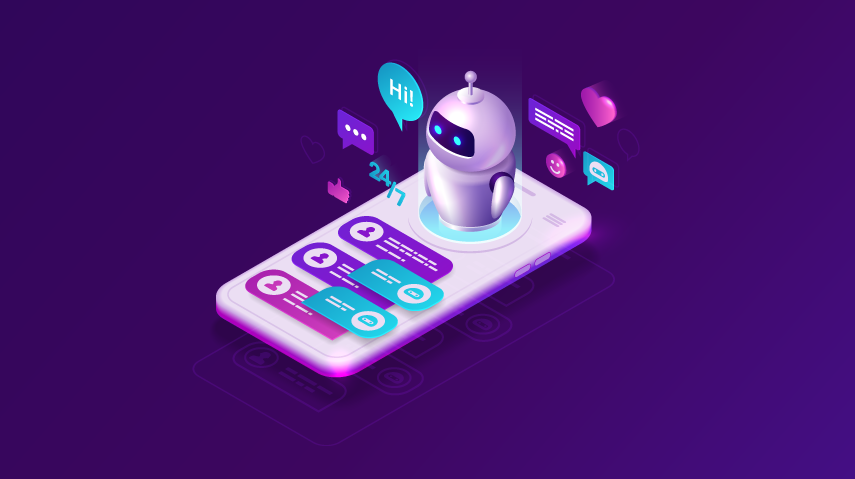
Self-Driving and Parking Vehicles
Self-driving and parking vehicles utilize deep learning, a subset of AI, to perceive the space around a vehicle. Innovation organization Nvidia utilizes AI to give vehicles “the ability to see, think, and learn, so they can explore an almost boundless scope of possible driving situations.” The organization’s AI-controlled innovation is now being used in vehicles made by Toyota, Mercedes-Benz, Audi, Volvo, and Tesla , and is sure to revolutionize how individuals drive and empower vehicles to drive themselves.
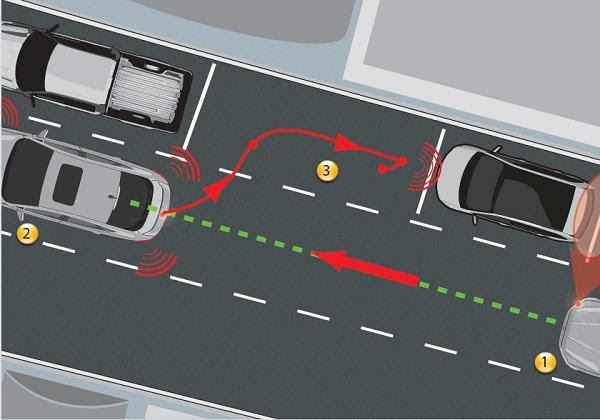
Google’s AI-Powered Predictions
Utilizing anonymized location information from cell phones, Google (Maps) can break down the speed of movement of traffic at some random time. Also, with its securing of publicly supported traffic application Waze in 2013, Maps can more effectively join client revealed traffic incidents like construction and accidents. Admittance to immense measures of information being taken care of to its exclusive calculations implies Maps can decrease drives by recommending the fastest routes taking least time to and from work.
Commercial Flights Use an AI Autopilot
AI autopilots in business carriers is a shockingly early utilization of AI innovation that dates as far back as 1914, depending upon how freely you characterize autopilot. The New York Times reports that the normal trip of a Boeing plane includes just seven minutes of human-controlled flight, which is commonly held uniquely for departure and landing.
Later on, AI will abbreviate your drive significantly further through self-driving vehicles that outcome in up to 90% less mishaps, more proficient ride sharing to decrease the quantity of vehicles out and about by up to 75%, and smart traffic signals that diminish stand by times by 40% and by and large travel time by 26% in a pilot study.
Open your phone with face ID
One of the main things numerous individuals do every morning is to go after their cell phones. What’s more, when your gadget gets opened utilizing biometrics, for example, with face ID, it’s utilizing AI to empower that usefulness. Apple’s FaceID can be found in 3D. It illuminates your face and places 30,000 undetectable infrared dots on it and catches a picture. It then, at that point utilizes AI calculations to contrast the output of your face and what it has put away about your face to decide whether the individual attempting to open the telephone is you or not.
AI’s impact is everywhere
- Entertainment
Move over, Netflix. Later on, you could sit on the lounge chair and request a custom film highlighting virtual entertainers of your decision. In the meantime, film studios might have a future without flops: Sophisticated predictive projects will break down a film content’s storyline and forecast its box office potential.

- Medicine
AI algorithms will empower specialists and emergency clinics to dissect information and alter their medical care to the genes, environment and way of life of every patient. From diagnosing tumors to choosing which cancer treatment will turn out best for an individual, AI will drive the customized medicine revolution.
- National security
Artificial intelligence plays a generous part in national protection. Through its Project Maven, the American military is using AI “to filter through the huge stores of information and video caught by surveillance and then alert human analysts of patterns or when there is abnormal or suspicious activity.
Big data analytics related with AI will significantly influence intelligence analysis, as enormous measures of information are sifted in near real time—if not ultimately in real time—subsequently giving administrators and their staffs a degree of knowledge examination and usefulness up until now unseen. Order and control will likewise be influenced as human commandants delegate certain daily schedules, and in exceptional conditions, key choices to AI stages, significantly diminishing the time related with the choice and resulting activity. Eventually, warfare is a time competitive process, where the side ready to choose the fastest and move most rapidly to execution will by and large win. To be sure, artificially intelligent intelligence systems, attached to AI-helped order and control frameworks, can move decision support and decision making to a speed limitlessly better than the rates of the conventional method for taking up arms. This interaction will be so fast, particularly whenever coupled to programmed choices to launch artificially intelligent autonomous weapons systems capable of lethal outcomes.
- Cyber Security
There were around 707 million cybersecurity breaches in 2015, and 554 million in the first half of 2016 alone. Organizations are battling to remain one step ahead of hackers. USC specialists say the self-learning and mechanization abilities empowered by AI can ensure information more deliberately and reasonably, keeping people safer from terrorism or even smaller-scale identity theft. AI based tools search for designs related to malicious computer viruses and projects before they can steal massive amounts of information or cause havoc.
- Transportation
Autonomous vehicles—buses, trucks, cars, and drone delivery systems—utilize advanced innovative abilities. Those features include computerized vehicle direction and slowing down, path changing frameworks, the utilization of cameras and sensors for crash aversion, the utilization of AI to dissect data progressively, and the utilization of high performance computing and deep learning frameworks to adjust to new conditions through maps.
Light detection and ranging systems (LIDARs) and AI are vital to navigation and collision avoidance. LIDAR frameworks consolidate light and radar instruments. They are mounted on the highest point of vehicles that utilize imaging in a 360-degree from a radar and light bars to quantify the speed and distance of encompassing vehicles. Alongside sensors put on the front side, and back of the vehicle, these instruments give data that keeps fast-moving vehicles in their own path, assists them with staying away from different vehicles, applies brakes and direction when required, and does so instantly so as to avoid accidents.
- Smart Cities
Metropolitan governments are utilizing AI to further develop urban service delivery. Various metropolitan regions are embracing smart city applications that utilize AI to further develop environment planning,energy utilization, service delivery, resource management, and crime prevention, among other things. For its smart cities index, the magazine Fast Company ranked American locales and found Seattle, Boston, San Francisco, Washington, D.C., and New York City as the top adopters. Seattle, for instance, has accepted supportability and is utilizing AI to oversee energy use and asset the executives. Boston has dispatched a “City Hall To Go” that ensures underserved networks get required public administrations. It likewise has sent “cameras and inductive circles to oversee traffic and acoustic sensors to distinguish discharges.” San Francisco has ensured 203 structures as fulfilling LEED manageability guidelines. Moreover, now
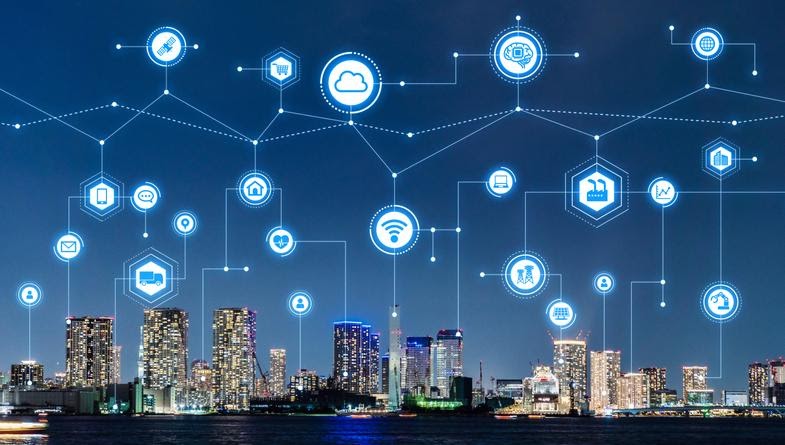
- AI’s impact on the workforce
During a talk at Northwestern University, AI master Kai-Fu Lee advocated AI innovation and its approaching effect while additionally taking note of its incidental effects and restrictions. Of the previous, he cautioned:
“The last 90%, particularly the last 50% of the world as far as income and education are concerned, will be gravely harmed with work relocation… The basic inquiry to pose is, ‘Hot routine job is?’ And that is the way possible [it is] a task will be supplanted by AI, since AI can, within the routine task, learn to optimize itself. Also, the more quantitative, the more objective the work is—isolating things into containers, washing dishes, picking foods grown from the ground, client assistance calls—those are a lot of prearranged errands that are monotonous and routine in nature. In the question of five, 10 or 15 years, they will be displaced by AI.”
In the warehouses of online giant and AI powerhouse Amazon, which buzz with in excess of 100,000 robots, picking and pressing capacities are as yet performed by people —but that will change.
- AI and the future of privacy & human rights
Obviously, much has been made of the way that AI’s dependence on enormous information is already impacting privacy in a significant manner. Look no farther than Cambridge Analytica’s Facebook antics or Amazon’s Alexa snoopping, two among numerous instances of tech gone wild. Without legitimate guidelines and deliberate restrictions,ritics argue, the situation will get even worse. In 2015, Apple CEO Tim Cook mocked contenders Google and Facebook (shock!) for greed driven information mining.
In a paper published by UK-based human rights and privacy groups Article 19 and Privacy International, anxiety about AI is reserved for its everyday functions rather than a cataclysmic shift like the advent of robot overlords.
“Whenever carried out mindfully, AI can profit society,” the writers compose. “Nonetheless, just like the case with most arising innovation, there is a genuine danger that business and state use has a detrimental impact on human rights. Specifically, utilizations of these advancements often depend on the generation, assortment, handling, and sharing of a lot of information, both about individual and aggregate conduct. This information can be utilized to profile people and foresee future conduct. While a portion of these utilizations, similar to spam channels or proposed things for web based shopping, may appear to be benevolent, others can have more genuine repercussions and may even posture exceptional dangers to one side to protection and the right to opportunity of articulation and data (‘freedom of expression’). The utilization of AI can likewise affect the activity of various different rights, including the right to a viable cure, the right to a fair trial, and the right to independence from discrimination.”
Conclusion
To sum up, the world is on the cusp of reforming numerous areas through artificial intelligence and data analytics. There are huge organizations in finance, public safety, medical care, criminal equity, transportation, and smart cities that have modified dynamic plans of action, hazard alleviation, and framework execution. These improvements are producing generous financial and social advantages. .
Artificial Intelligence makes our lives more proficient consistently. Artificial intelligence powers numerous projects and administrations that assist us with doing regular things, for example, interfacing with companions, utilizing an email program, or utilizing a ride-share administration.